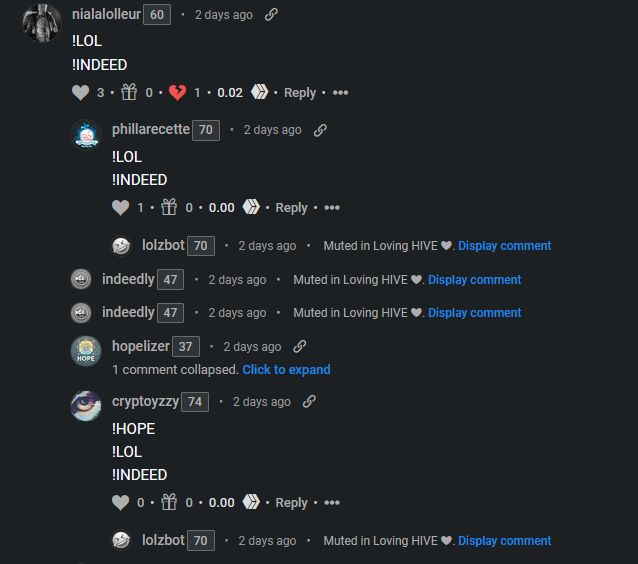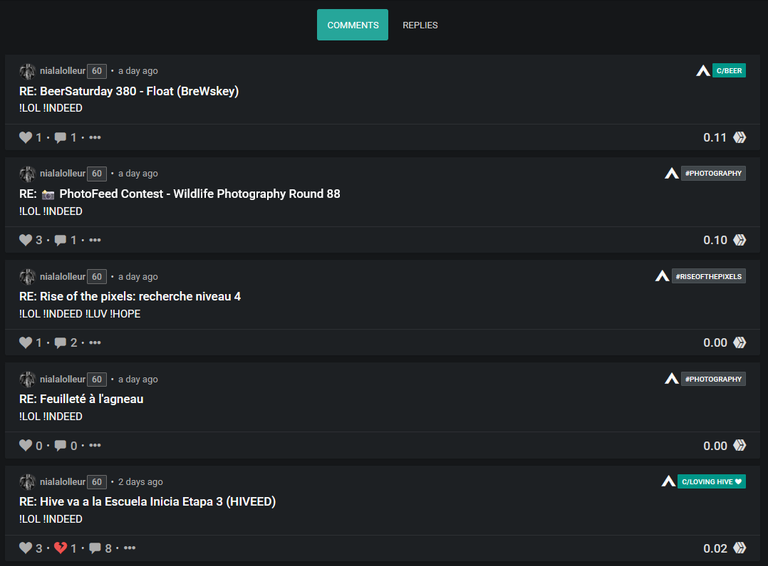If you already know about the general proof of brain workings of Hive, skip to the "Now back to recent events" headline.
Before I get into the details of what I wanted to discuss today we have to preface this with Proof of Brain on hive being quite flexible and hybrid at times with the lines being quite blurry in terms of: are you voting an author as support or are you voting them cause you're friends thus supporting each other or are you voting them purely based on receiving a vote back in exchange.
The latter is of course something frowned upon because it's a slippery slope into becoming whatever Steem is these days and I assume Blurt as well where no downvotes exist.
Now why is blatant vote-trading bad?
It encourages people to vote on posts and comments based mainly on their earnings and ignores the content, effort and value of posts. Here's how vote-traders may discourage the network as a whole to operate better if all they do is just trade votes with equal stakeholder sizes.
Let me just get my 1 daily post out and get 10 of my daily votes back by having 9 other accounts included in my circle of vote-trading.
If we ignore other voters/trails these accounts may have earned over time, a blatant vote-trader receives 100% of his daily vote-value back in exchange. Instead of creating 10 posts per day which would be obvious what the intentions are in that case, they spend 9 of their votes on other stakeholders in their quidproquo agreement.
All these accounts need to do is create a post daily and receive the votes they're meant to curate with back on their posts by trading votes with 9 others doing the same.
These accounts now don't care about putting in effort into the post, don't care about engaging with an audience, don't care about attempting to bring new consumers to their posts from within or outside hive and in general don't care if their posts are being consumed at all.
Furthermore their stake isn't helping decentralize the network by rewarding newer and other users outside of their circle as it primarily increases their returns so they're getting 100% out of curation rewards and 100% out of their votes as author rewards.
While curation is generally easy to maximize returns on for an average 8.5% APR, as long as you don't upvote posts that are going to get massively downvoted. Attempting to maximize your author returns the same way isn't what proof of brain is meant to be used for because it incentivizes low effort and quality posts. Even if that's not the case when it comes to quality and effort, it removes the randomness factor of how much rewards your posts can earn and the effort to go out there and seek more connections to receive genuine votes or autovotes because accounts in this vote-trading circle are already beating most other accounts in terms of APR since they're not sharing their votes with other random accounts of all sizes.
Aside from the blatant vote-trading, there are other variations to this. One form can exist in what we experienced a few years ago where we accepted the bid bot system and ran with it (note, not everyone participated in this). This effectively caused the returns of stakeholders to increase by a lot because they'd sell votes directly, receiving up to 80-100% of their spent votes back in rewards. Most of them were lower than 100% meaning the authors would profit off of buying votes as paying for trending attention for the sake of the attention was in very low demand at the time with the size of our userbase.
Not going to get too much into that era but it has sprouted back up in different forms by bidding for votes through layer 2 tokens. Projects offering tokens as long as you delegate to them or buy the tokens from the market and exchange them for a layer 1 hive upvote. While they've remained active saying things like "we check that there's no abuse" it removes any effort into manual curation and focuses the voting power between the accounts bidding for votes while ignoring those not participating. As you can imagine this is quite similar to buying votes or trading votes, you're instead just delegating your HP out to receive a 10x upvote back instead of self-voting 10x per day while the delegation project/token gets a profit out of you through curation rewards.
Now back to recent events.
Some projects have initiated some kind of "premium" services and included l1 curation in the mix to alter how they curate posts/comments based on whether those stakeholders are paying a premium price.
As you can imagine it, this is already starting to step on the toes of proof of brain curation. If your project gives extra weight on people/posts sending you kickbacks while purposely or not lowering the rewards to those who don't you're already increasing your own returns unfairly compared to other projects.
Advertising that you're going to upvote posts/comments higher as long as you're paying for the project is the wrong way to go about this. Voting power is finite and your delegations are also finite so if you start focusing on those who give you extra rewards you're incentivizing people to delegate more to your project and pay you extra for that finite voting power. Now you may have people who remove their delegations/support from other projects in exchange for getting a higher return from yours at the cost of genuine curation.
It's a bit difficult to compare this project in question with others, services like @threespeak for instance have an initial cost to storing content you're uploading there so you know where your 10% beneficiary is going most of the time when you post there. @threespeak is also not asking you to delegate to them in order to receive curation to for instance help them with further development of the project which the example above may be using their curation rewards from delegations for.
Another example would be @zing.fund which accepts 10% of posts posted in that community and encourages authors to send rewards their way to fund things like curation/moderation, further funding of @holozing and future social outreach on web2. If some authors don't send beneficiaries its way, however, even after being asked to, we don't completely ignore their posts from curation nor do we upvote posts less if they don't. Curation has to remain impartial regarding if the project is receiving extra rewards from the authors or not.
Point is, if at any time you start splitting up users based on whether they're giving you a higher return to affect how you curate them it has a cost on fairness to curation. If this becomes an accepted norm then you may start seeing another project pop up that asks for 2x more than what the "premium" cost of the previous one was but at the same time offers you 2x+ higher returns in terms of being curated. While the users participating in this see a return on their "investment" of having paid that premium, delegators and supporters remove their delegation from the previous project and add it towards the new one because they may get a higher return there from the increased premium costs and demand for extra voting power to make up for the cost.
There were additional other questions in regards to a new service this project offers, one being "encrypted" content where only those paying the content creator beforehand can view the content. I don't currently see how this would ensure the rest of the platform that layer 1 proof of brain is being used properly there without abuse. Maybe if the curation team behind the project has access to all encrypted content to ensure there's no abuse going from a closed group, but even there there's a lot of trust required from the rest of stakeholders knowing they're curating it according to the general rules of curation and that voting power isn't used excessively by ignoring previous content and users not participating in encrypted content.
I wanna make it clear that I'm not trying to "stifle" innovation with this post, it's cool that front-ends and dapps are looking for different ways to make curation and content production work here but the important part is that curation is treated universally for everyone and every dapp. If there are signs that certain apps are favoring users who give them more rewards in one way or another it unfairly encourages people to move there in exchange for returns rather than because they like the dapp and what it offers people compared to others.
Things like encrypted content are quite experimental so my suggestion would be that if they were to accept rewards for them it should forfeit layer 1 rewards while accepting layer 2 as the authors are already receiving payment for the encrypted content while blocking out the rest of stakeholders of layer 1.
Lastly, curation can be used as a way to incentivize people to post in your community/dapp but it needs to adhere to the general rules of it when using layer 1. Projects are free to spend their voting power only on posts being posted within their service/front-end/community and ignore others but going so far as to then further split your own community based on if they're paying you extra in exchange for votes causes a slippery slope back into bid bot/delegation for votes/token bidding for votes. There's some blurred lines when it comes to this as well similar to how voting works in this day and age. I guess it would depend what the additional cost funds are being used towards but since most of the rewards in curation exist on layer 1 there needs to be a transparent way of showing that the costs are being used to improve and give value back to that layer rather than just being extra income for a project/entity/layer 2 at the cost of fairness in curation of layer 1.
Anyway, I realize there's a lot of details surrounding this that may not be completely correct and a lot of additional notes that could make things clearer but figured I'd just share my thoughts on the matter as we're seeing a lot of cool developments happening in this space lately and I'd want curation to remain as fair as we can make it in the ecosystem. This post isn't meant to throw shade at any developing projects experimenting with new ideas and innovations, rather try and lay down my thoughts on how I hope layer 1 curation is handled within it. Looking forward to discussing things regarding it further in the comments!
Image from pexels.com







